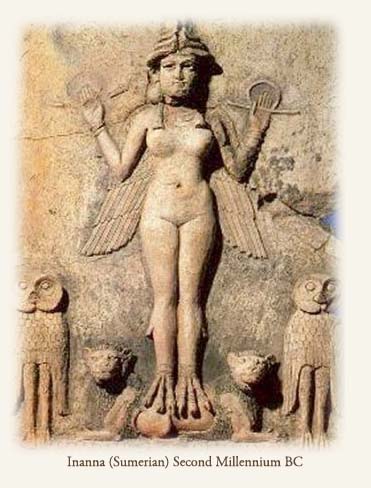The Grapevine Art & Soul Salon
Miscellany: A Gallery for Related Materials

Book Review by Jonathan Knott
The Year the Music Changed: The Letters of Achsa McEachern-Isaacs and Elvis Presley (Toby Press, 2006), 244 pages.
Anyone looking at the full title of Diane Thomas' novel for the first time might be tempted to think, “Hmm, another book about Elvis." It is decidedly, however, not just another book about Elvis, which is evident from the first page of this novel to the last. Elvis isn’t even the more important of the two main characters, a fact which gives the novel much more weight than it might have otherwise. It takes itself seriously, and the reader is aware of this from the introduction, which is realistic enough to make one glance back to the cover once or twice to make sure this is indeed a work of fiction.
.The premise is simple. Achsa McEachern-Isaacs, a woman who had been "a lightning rod for New York’s alternative theater movement,” dies in an auto accident in 1975. Two years later, just days after Elvis Presley's death, Achsa's biographer (Dr. Gelbar, a professor of theater at a college in Vermont) receives a box in the mail with a letter that purports to be from Elvis Presley. The box contains letters written to Elvis from Achsa during a year-long correspondence in 1955, when she was 14 years old. The biographer authenticates the letters and holds onto them for a couple of decades until Achsa's daughter discovers her mother's letters from Elvis and turns them over to Dr. Gelbar. He publishes them all in order, unabridged, to recreate the correspondence. The body of the novel consists only of the letters.
It would be easy to make a real mess out of this premise, or to make the writing lightweight and silly, but that doesn’t happen here. Achsa isn’t your typical Elvis fan: cute, traveling in a herd, squealing and trying to possess something touched by the idol. In fact, she is rather the opposite: a highly intelligent girl (a high school senior at 14) with an ugly secret (literally). Achsa has to deal with growing up as an only child in a world she is ill-adapted to, mainly because of a hideous harelip. Compounding the obvious problems that deformity poses for Achsa in school are the problems at home. Her mother is strikingly beautiful and distant. Her father is narrow-minded, pious and angry, and he worships her mother beyond fault.
Achsa happens accidentally to listen to a hillbilly station playing Elvis’ first release and really empathizes with the feeling he puts into it. She recognizes that it isn’t hillbilly music but "that new music they call rock and roll," and she writes Elvis a letter telling him he ought to be getting more airplay on other stations. He replies and reveals himself to be a surprisingly lonely, down-to-earth young man who’s taken with her interest in him and with her intelligence. Her self-consciousness about her looks and the fact that he is not yet a star are reasons they do not fall into a typical fan-star relationship. All too aware of her physical shortcomings, she ignores his several requests for a photograph and keeps her distance. He, on the other hand, is quickly becoming famous. He confesses to her that he feels embarrassed by his lack of education. In their correspondence, he tells her what it’s like to be lonely and famous at the same time, and he gives her encouragement and advice on being confident. She tells him what it’s like to be lonely and outcast and gives him advice on how to follow his heart--plus the grammar lessons that he asks for.
The year that follows is filled with heartache and tragedy, hope and promise for both characters. Achsa has to come to terms with her family being torn apart, as well as trying to fit into a society that rejects her because of her looks and her intellectual interests, and Elvis has to deal with a career rapidly growing beyond his ability to control it and at the same time to stay within his wishes and personal limitations. He wanted to sing gospel, for instance, but was told he had to placate his fans with the music they demanded to hear. He reveals to Achsa his desire to be a serious actor but, as we know, when he got his chance, he was forced to do substandard movies that appealed to a larger audience. He could never be himself. Elvis and Achsa rely heavily on each other to get through this year of their correspondence, and they both do not get what they hope for (through no fault of their own).
What makes this story work is the depth and reality of the characters. In addition, Thomas is able to recreate the mid-50’s in a way that is not portrayed in most books and movies. This was a time when the United States was flush with new money and power, yet was still socially backward and psychologically repressed. Segregation was still in full effect. Thomas brings out the mystery and diversity of black culture (through the empathy of the main characters, who in many ways are as repressed or more repressed themselves), without being unduly politically correct. It is a refreshing approach. Elvis would likely never have been as famous without drawing heavily on black musical influences, and yet early on, black people could not see his show. Elvis also likely would never have been as famous if young women of the time weren’t so sexually repressed; they projected an image of virility onto him that would have been impossible for anyone to live up to--he, being a modest and pious boy by nature, less than most. There is little doubt this idolatry had a great deal to do with his self-destruction, and the seeds of it are strewn realistically here. The cute, cashmere-sweater-wearing girls who squeal and fling themselves at Elvis’ feet are the same ones who pick on Achsa and the same ones who force Elvis to become what he is not (or at least not prepared to be): an icon.
Achsa proves to be a stronger character, taking her pain in stride and achieving her goals, though not without being misled and wounded along the way. When she realizes she has a talent and desire for theater (where she feels the playing field is more level for awkward people to be able to express themselves), she applies herself and ultimately succeeds. She is the anti-Elvis fan, appreciating him more for his honesty and kindness than his looks or talent (though she isn’t impervious to those, either).
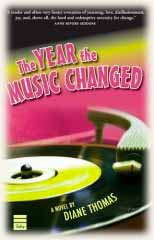
This book is finally very human. It gives us a close look at the big souls of two people who are both outcasts (Elvis inwardly, Achsa outwardly) through a brief period of time, with a satisfying mixture of the good and the bad, the kind and the hurtful, laughter, tears, mild triumphs and ultimate destruction. It explores the inner harelip of Elvis (fear and naivete), the outer harelip of Achsa, and the social harelip of the human race, who would crush these two people who simply wanted to be normal. Perhaps this is what led them both to become exceptional, for better or for worse.
Click here to go to Diane's website for more information.
Booksigning at Palmetto
Diane Thomas was our guest at a garden party luncheon on Saturday, June 3, at The Palmetto Place where she read from her book and talked with other guests about writing the book and getting it published.
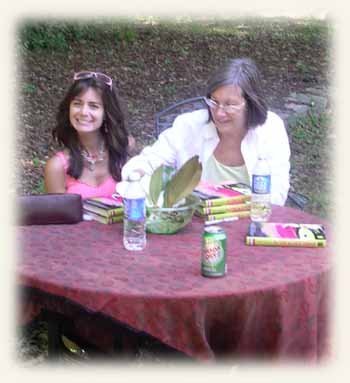
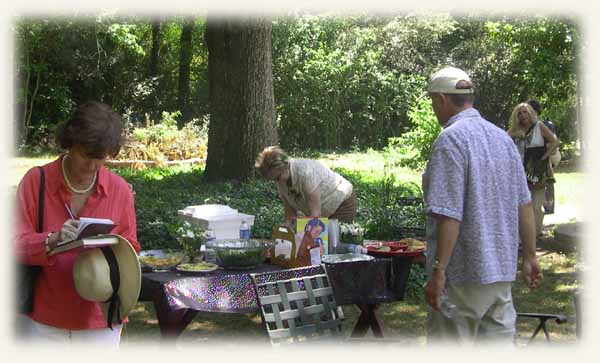
Nancy Law and Anne Lovett in the background

Art Gallery


More heavenly than those flashing stars appear the endless eyes that Night opens up in us.
In a Dark Time
by Theodore RoethkeI meet my shadow in the deepening shade;
I hear my echo in the echoing wood--
A lord of nature weeping to a tree,
I live between the heron and the wren,
Beasts of the hill and serpents of the den.
At odds with circumstance? The day's on fire!
I know the purity of pure despair,
My shadow pinned against a sweating wall,
That place among the rocks--is it a cave,
Or winding path? The edge is what I have.
A night flowing with birds, a ragged moon,
And in broad day the midnight come again!
A man goes far to find out what he is--
Death of the self in a long, tearless night,
All natural shapes blazing unnatural light.
My soul, like some heat-maddened summer fly,
Keeps buzzing at the sill. Which I is I?
A fallen man, I climb out of my fear.
The mind enters itself, and God the mind,
And one is One, free in the tearing wind.
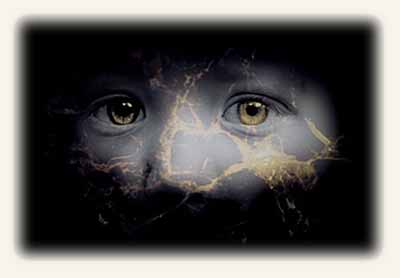
www.apple.com/trailers/miramax/darkness/
Bavarian Gentians
by D. H. Lawrence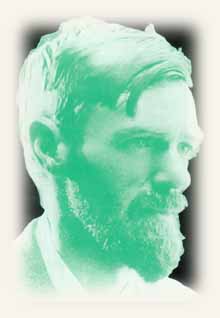
in Soft September, at slow, Sad Michaelmas.
darkening the daytime torchlike with the smoking blueness of Pluto's gloom,
ribbed and torchlike, with their blaze of darkness spread blue
down flattening into points, flattened under the sweep of white day
torch-flower of the blue-smoking darkness, Pluto's dark-blue daze,
black lamps from the halls of Dis, burning dark blue,
giving off darkness, blue darkness, as Demeter's pale lamps give off light,
lead me then, lead me the way.
let me guide myself with the blue, forked torch of this flower
down the darker and darker stairs, where blue is darkened on blueness.
even where Persephone goes, just now, from the frosted September
to the sightless realm where darkness was awake upon the dark
and Persephone herself is but a voice
or a darkness invisible enfolded in the deeper dark
of the arms Plutonic, and pierced with the passion of dense gloom,
among the splendor of torches of darkness, shedding darkness on the
lost bride and groom.


From T. S. Eliot's Four Quartets, "East Coker"
The vacant interstellar spaces, the vacant into the vacant,
The captains, merchant bankers, eminent men of letters,
The generous patrons of art, the statesmen and the rulers,
Distinguished civil servants, chairmen of many committees,
Industrial lords and petty contractors, all go into the dark,
And dark the Sun and Moon, and the Almanach de Gotha
And the Stock Exchange Gazette, the Directory of Directors,
And cold the sense and lost the motive of action.
And we all go with them, into the silent funeral,
Nobody's funeral, for there is no one to bury.
I said to my soul, be still, and let the dark come upon you
Which shall be the darkness of God. As, in a theatre,
The lights are extinguished, for the scene to be changed
With a hollow rumble of wings, with a movement of darkness on darkness,
And we know that the hills and the trees, the distant panorama
And the bold imposing facade are all being rolled away—
Or as, when an underground train, in the tube, stops too long between stations
And the conversation rises and slowly fades into silence
And you see behind every face the mental emptiness deepen
Leaving only the growing terror of nothing to think about;
Or when, under ether, the mind is conscious but conscious of nothing—
I said to my soul, be still, and wait without hope
For hope would be hope for the wrong thing; wait without love,
For love would be love of the wrong thing; there is yet faith
But the faith and the love and the hope are all in the waiting.
Wait without thought, for you are not ready for thought:
So the darkness shall be the light, and the stillness the dancing.
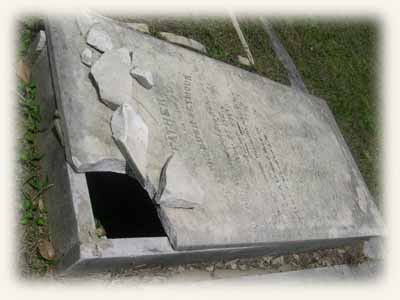
if I have made of my life something particular, and real.
I don't want to find myself sighing and frightened,
or full of argument.
I don't want to end up simply having visited this world."
Mary Oliver, "When Death Comes," lines 24-28.
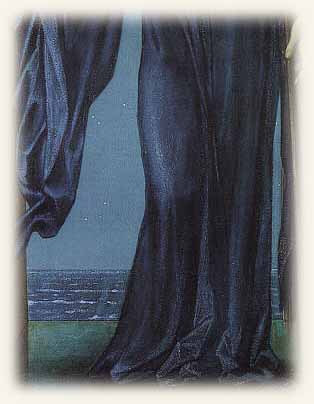
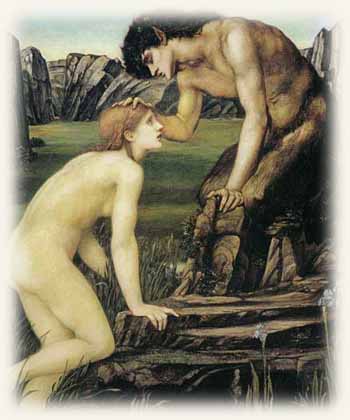
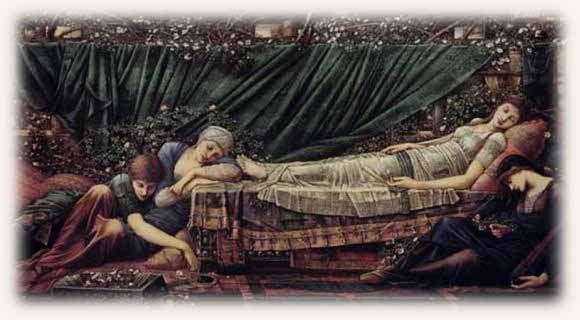
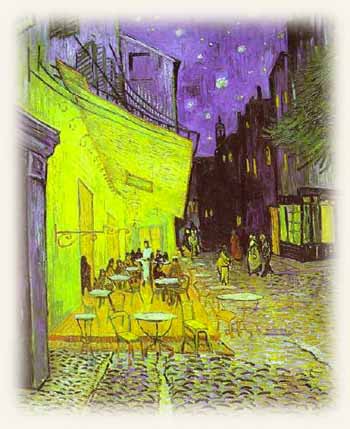
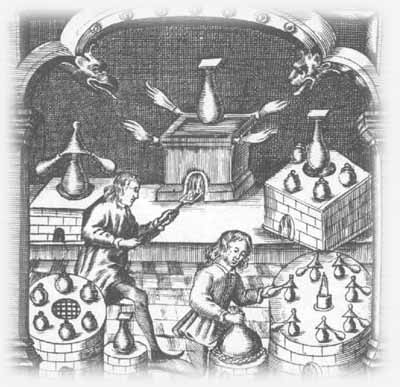
www.levity.com/alchemy/images/
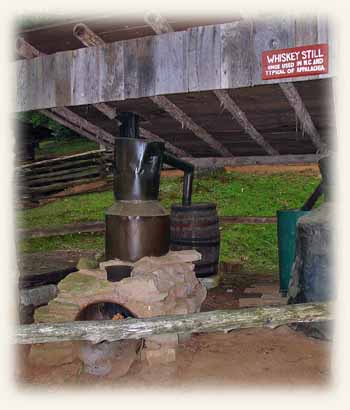
www.galenfrysinger.com/appalachia_museum.htm
